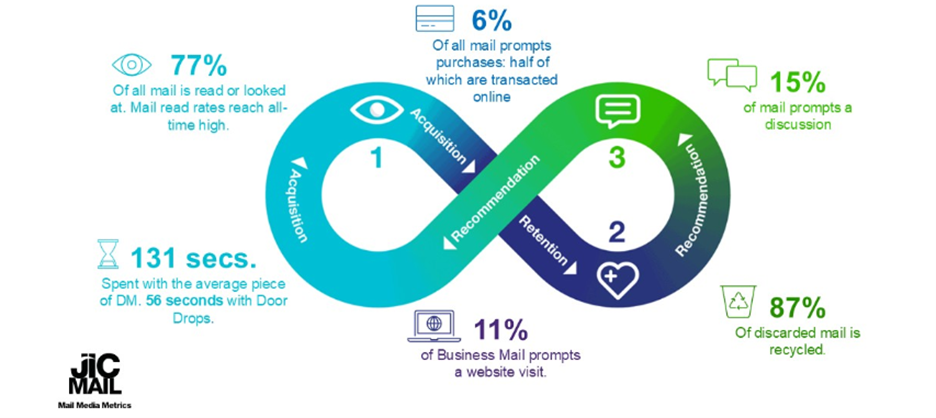Direct mail read rates rocket!
Direct mail continues to be one of the most effective marketing channels, with the latest JICMail data revealing that 77% of mail was read or looked at in Q4 2024—an all-time high since tracking began. At a time when digital channels are becoming more saturated and ad fraud is on the rise, mail has proven its ability to cut through the noise and drive meaningful consumer action. Unmatched Engagement and Response Rates JICMail’s data highlights the growing impact of mail across various industries, including grocery, charity, travel, finance, and healthcare. Business mail commanded the highest attention span, with an average of 191 seconds of engagement per item, while direct mail held attention for 133 seconds across a 28-day period. But [...]









